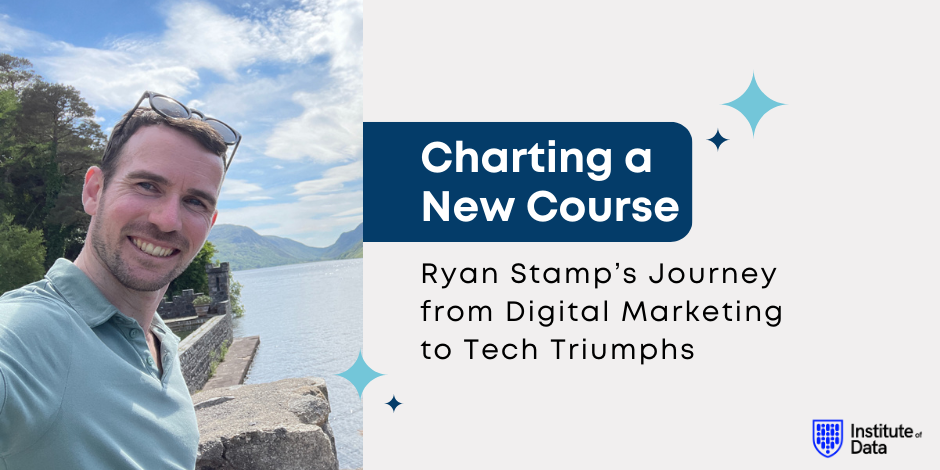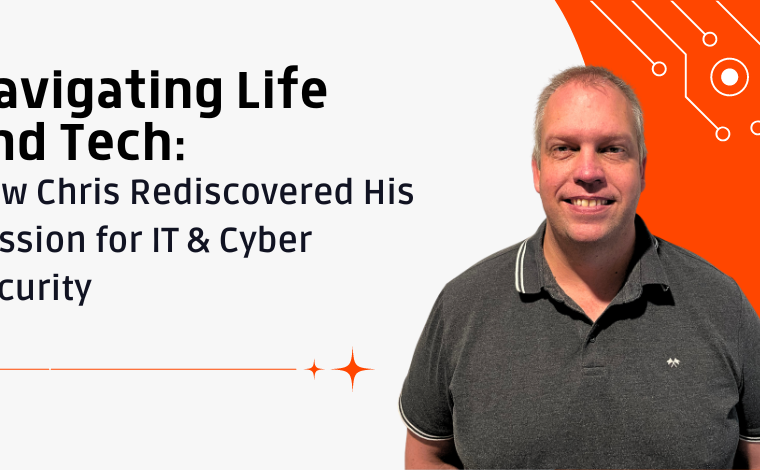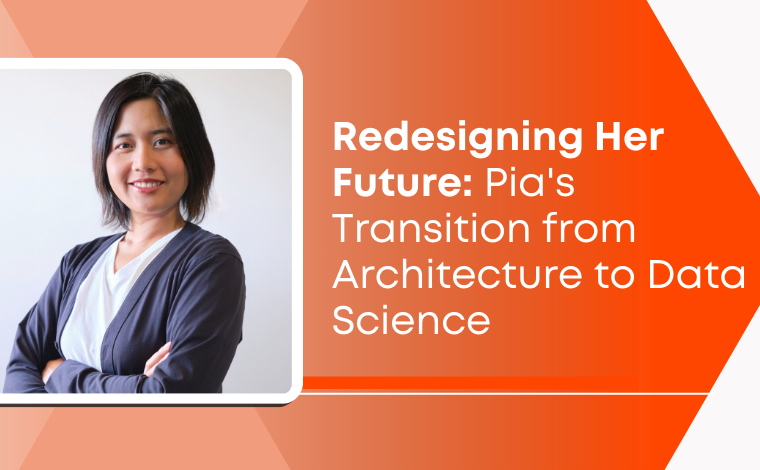Charting a New Course: Ryan Stamp’s Journey from Digital Marketing to Data Science Triumphs

Stay Informed With Our Weekly Newsletter
Receive crucial updates on the ever-evolving landscape of technology and innovation.
Like many New Zealanders, as a young professional, Ryan Stamp had set his sights on an overseas experience. Then the pandemic hit.
Ryan shelved his overseas plans and was forced into reassessing his career.
It was during this time that he rediscovered his interest in data science.
We caught up with Ryan recently, keen to hear about his journey back to data science and his experience with the Institute of Data’s Data Science and AI programme.
Read on to learn what it takes to pivot into a successful career as a data scientist and what career opportunities choosing data science can provide.
1. Tell me about yourself, Ryan.
I was born and raised in Auckland, and it has always felt like home. All my family are here.
I had plans to move abroad, but the pandemic quashed them.
With my visa and a job lined up, I was all set for Canada, but the universe had other plans.
I studied Marketing and Information Management at the University of Auckland, which, in retrospect, was a good decision. I didn’t have the wisdom at the time to realise it.
Professionally, the last decade has been a bit of trial and error.
But Auckland has provided the business opportunities I was after.
It took me a while to reconnect to my interest in data science, but I’ve ended up in the role I now enjoy.
2. What are your interests?
I’ve always been active and enjoy spending time outdoors. I like travelling, bush walks, and hikes.
I’ve also always had an interest in cars.
As a toddler, I always had a Matchbox toy in my hands.
I don’t know where it came from, but it’s helped me make career choices and led to an interest in the automotive industry, where I get to follow new technology, market shifts, and global trends.
3. Tell me about your career before you started the Institute of Data programme.
After finishing university, I worked in marketing and even sales for a while; however, through these experiences, I understood that my professional strengths were more analytical.
While I will always give credit to marketers, it’s not an easy job, and everyone’s trying to come up with the next big thing.
But I got to the point where I found that mentally exhausting.
I realised that my methodical and procedural way of thinking was better suited elsewhere.
I was always more interested in analysing consumer behaviour and understanding the reasoning behind marketing decisions.
Understanding ‘why’ has always been what has interested me in many of my roles actually, and that interest led me back to data analytics and then data science.
[su_quote] Every business and organisation has data feeding into it, internally and externally. [/su_quote]The combination of being interested in how organisations use data to their advantage and my love of cars led me back to data science and the automotive industry.
4. Why did you decide to study Data Science & AI with the Institute of Data?
My sister’s partner recently graduated from the Institute of Data’s Data Science & AI programme.
His path is similar to mine in that he came from a sales background and found himself looking at data as well.
He finished the programme and recommended it as he knew of our shared interest in the data space.
I realised that if I wanted to enter the industry, I needed to upskill because it’d been about ten years since university, and the data space had changed significantly.
The Institute of Data certification ticked many boxes (mostly being able to complete the programme part-time outside of work).
It also appealed more than returning to university once again.
5. How did you find the programme overall?
[su_quote]I needed to be really committed.[/su_quote]Around midway through, I hit a wall.
On reflection, it was just a combination of things: the coursework intensified, and the pressure of working full-time added to that.
Thankfully, I had some amazing support after reaching out to student services.
They were great, and so were our teaching assistants.
They could appreciate where I was coming from and helped me work through some useful solutions, which included finding the right work and study balance.
6. Were there any resources you considered particularly valuable to you?
[su_quote]The teaching assistants were invaluable. They played a crucial role in my learning.[/su_quote]When we came to the part of the programme where we had to work on our Capstone projects, the advice from the assistants was spot on.
The Capstone project was initially overwhelming; however, the teaching assistants helped me compartmentalise and simplify everything.
My project was based on consumer behaviour, where I found a data set for a financial advisory service that customers could subscribe to.
I wanted to understand the reasons why a customer left and make predictions based on their interactions with the service, which involved looking at all the data related to customer subscriptions.
That’s always been the part I’ve enjoyed: taking insights and communicating something meaningful.
Also, the ‘careers coaching’ was a key resource after completing the certificate, as I was in the unique circumstance of completing the certificate and being made redundant simultaneously.
The career coach’s guidance and positive encouragement while I applied and interviewed for new roles were a huge moral booster.
7. You finished the programme and got a job in the industry. That’s awesome! Please tell me about your new role.
Absolutely! I saw the job ad at BMW soon after finishing the programme.
My success in landing the position was down to a mix of industry experience and my newly acquired skill set from the Institute of Data.
The combination of my love for automotive tech and my data science skills proved the ideal match that they were looking for.
I’m now collaborating, supporting and helping our internal and external stakeholders, where I get to utilise my critical thinking and storytelling skills.
Being able to leverage the data on the organisation’s behalf and trying to be two steps ahead has been both rewarding and challenging.
8. What do you love the most about working in the tech industry?
It’s the fact that it’s very fast-paced.
Data science is an exciting industry that is growing and will continue to grow.
With AI, it’s moving at such a rapid pace.
It will be interesting to see how that space copes and how problems are resolved.
It’s an industry where there’ll always be curveballs, always something new to get your head around.
9. What guidance would you give to someone applying for jobs in the Data Science industry?
Don’t underestimate your business acumen.
I think in the data field, having this knowledge counts for a lot.
Not only being able to look at the numbers but also applying them is key.
The insight and the storytelling within a business environment should be recognised, too.
Also, understand the importance of good communication skills and building rapport with your fellow colleagues.
The opportunities to use what I learned in the programme are endless.
Whichever way you want to look at it – data is everywhere.
Conclusion
You can download the course guide using this link to learn more about the Institute of Data’s Data Science & AI programmes.
Alternatively, if you want to speak to our local team about the programmes, we invite you to book a career consultation with one of our experts at the Institute of Data and start your journey with an actionable plan.
You can also connect with Ryan and follow his professional journey on LinkedIn.




